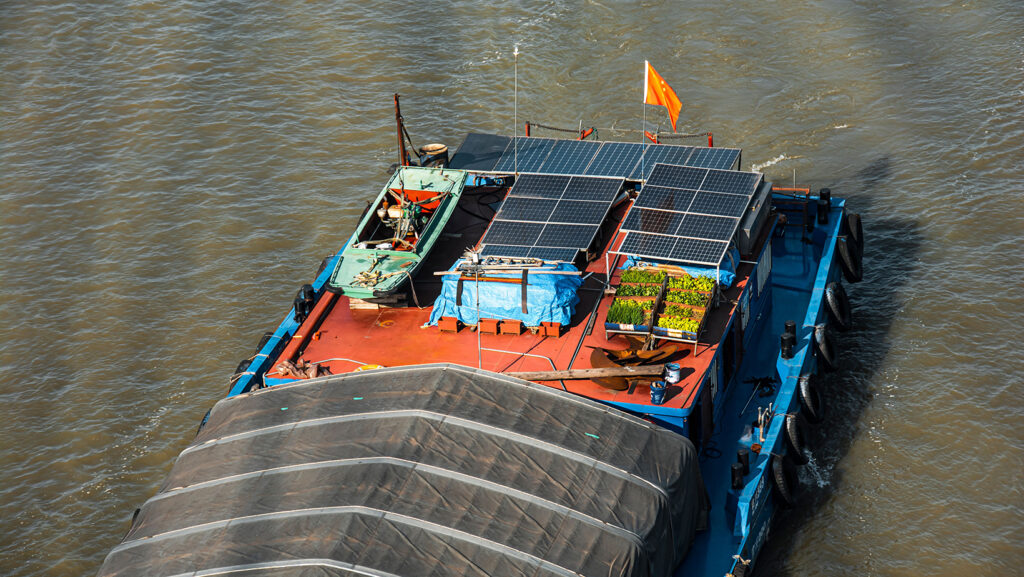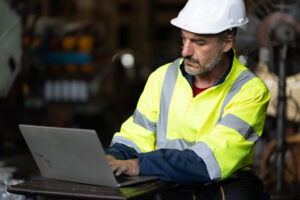
The barge transport industry is at a crossroads. As global pressure mounts to reduce carbon emissions and operate more sustainably, companies across the logistics sector are investing in green technologies—alternative fuels, smart routing software, emissions monitoring systems, and more. These tools have the potential to transform the industry’s environmental footprint. But even the most advanced technology can’t deliver results without skilled and committed people behind the wheel.
For barge operators and crew members, the shift to sustainability isn’t just about new equipment—it’s about new habits, new mindsets, and new responsibilities. Without proper training, the promise of eco-friendly innovation risks being left unrealized. To meet the industry’s sustainability goals, company leaders must prioritize training the next generation of eco-conscious barge operators.
The Industry-Wide Shift Toward Sustainability
Sustainability is no longer a niche concern—it’s a business imperative. Regulatory bodies worldwide are tightening emissions standards, while shippers and end customers are demanding greener supply chain partners. In this climate, the barge transport industry—already known as one of the most fuel-efficient modes of freight—is under pressure to push even further.
New environmental compliance rules are emerging at the federal and state levels, targeting emissions, fuel usage, and waterway protection. At the same time, market forces are shifting: public and private sector clients are factoring sustainability metrics into their contracting decisions. Simply put, being “green” isn’t just good for the planet—it’s increasingly necessary for doing business.
Barge operators are in a unique position to lead. With their low emissions profile and potential for large-scale efficiency, barges could play a central role in decarbonizing freight. But reaching that potential requires more than better hardware—it requires widespread operational change, supported from the deck up.
Emerging Sustainability Technologies
The barge industry isn’t standing still—it’s innovating. From cleaner fuels to intelligent onboard systems, a wave of new technologies is reshaping how vessels operate with the environment in mind.
Alternative fuels such as liquefied natural gas (LNG), biodiesel blends, and even electric propulsion systems are becoming more accessible, significantly reducing greenhouse gas emissions. Meanwhile, advanced fuel management and route optimization tools use real-time data to reduce idle time, avoid current-heavy paths, and minimize unnecessary fuel burn.
Other onboard tech is helping crews monitor and improve environmental performance. Emissions tracking software, engine diagnostics, and automation tools make it easier to identify inefficiencies and take corrective action quickly.
But here’s the catch: none of this equipment is plug-and-play. These tools are only as effective as the crews using them. Without proper understanding and buy-in from operators, even the best technology can be underused or misused, undermining the very sustainability goals it was designed to achieve.
Investing in eco-conscious operator training isn’t
just about doing the right thing for the planet—it’s a
smart business move with tangible returns.
The Missing Link: Training Operators for Eco-Conscious Practices
Ultimately, real change happens on the water in day-to-day operations. That’s where well-trained, eco-conscious barge operators make all the difference.
Even with cutting-edge tools, bad habits can sabotage sustainability efforts. Running engines unnecessarily, taking inefficient routes, or failing to maintain equipment properly can all waste fuel and increase emissions. These aren’t just technical problems—they’re training problems.
The industry needs a cultural shift to close that gap: creating a baseline where barge crews understand how to use the tools and why sustainability matters. Training programs should cover everything from fuel-efficient piloting techniques to preventive maintenance that reduces engine strain and leaks. Operators should learn how small actions—reducing idle time, trimming unnecessary weight, planning for current and wind—can collectively deliver big environmental and economic payoffs.
The case for structured training is growing stronger. Standardized, role-specific education can ensure consistency across fleets and help set clear expectations for crews. Certification programs can reinforce accountability while giving operators a sense of pride and professionalism in their environmental role. Ultimately, eco-conscious practices shouldn’t feel like extra work—they should be second nature. That only happens when companies invest in the people at the heart of barge operations.
Making the Business Case: Benefits of Eco-Conscious Training
Investing in eco-conscious operator training isn’t just about doing the right thing for the planet—it’s a smart business move with tangible returns.
First and foremost, trained crews are better positioned to comply with increasingly strict environmental regulations. From fuel consumption limits to emissions tracking requirements, having operators who understand how to stay within the lines reduces the risk of costly violations and downtime due to non-compliance.
Increasing fuel efficiency is another major win. Even modest improvements in navigation and engine management can lead to significant savings over time. Trained crews can help reduce unnecessary fuel burn, limit maintenance issues, and extend the lifespan of vessels and equipment, contributing to lower operating costs.
Safety also improves when crews are well-versed in sustainable practices. Many eco-friendly behaviors—like smooth throttle management, route planning, and proactive maintenance—directly align with safer operations. Fewer accidents, less wear on equipment, and more predictable performance all flow from this kind of training.
And finally, there’s the reputational value. As shippers and customers increasingly seek partners who can deliver on sustainability, having a trained and certified eco-conscious workforce sets a company apart. It builds trust, opens new business opportunities, and ensures that environmental investments, like alternative fuels and emissions tech, pay off.
Ultimately, real change happens on the water
in day-to-day operations. That’s where well-trained,
eco-conscious barge operators make all the difference.
Closing the Loop: From Smart Tools to Smarter Crews
Sustainability in barge transport begins with people. While tools like alternative fuels, smart routing, and emissions tracking software are essential, they only reach their full potential in the hands of trained, eco-conscious crews.
Forward-thinking companies must prioritize workforce development alongside tech investment. At BargeOps, we believe in bridging that gap—our software empowers operators with the insights they need to make smarter, greener decisions in real-time.
If you’re investing in sustainability, invest in your crew, too. That’s how we build a cleaner, more efficient future—one barge at a time.


